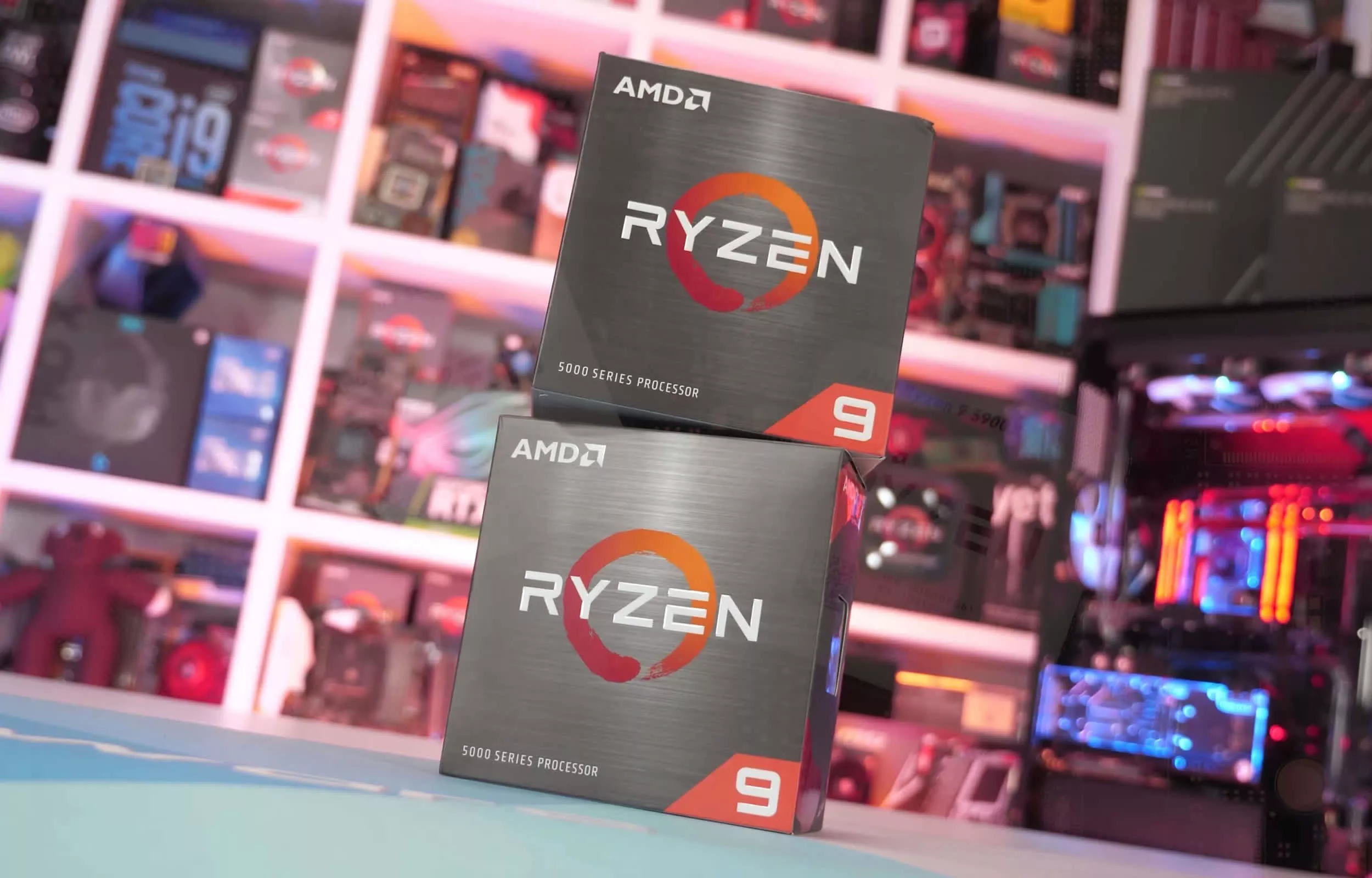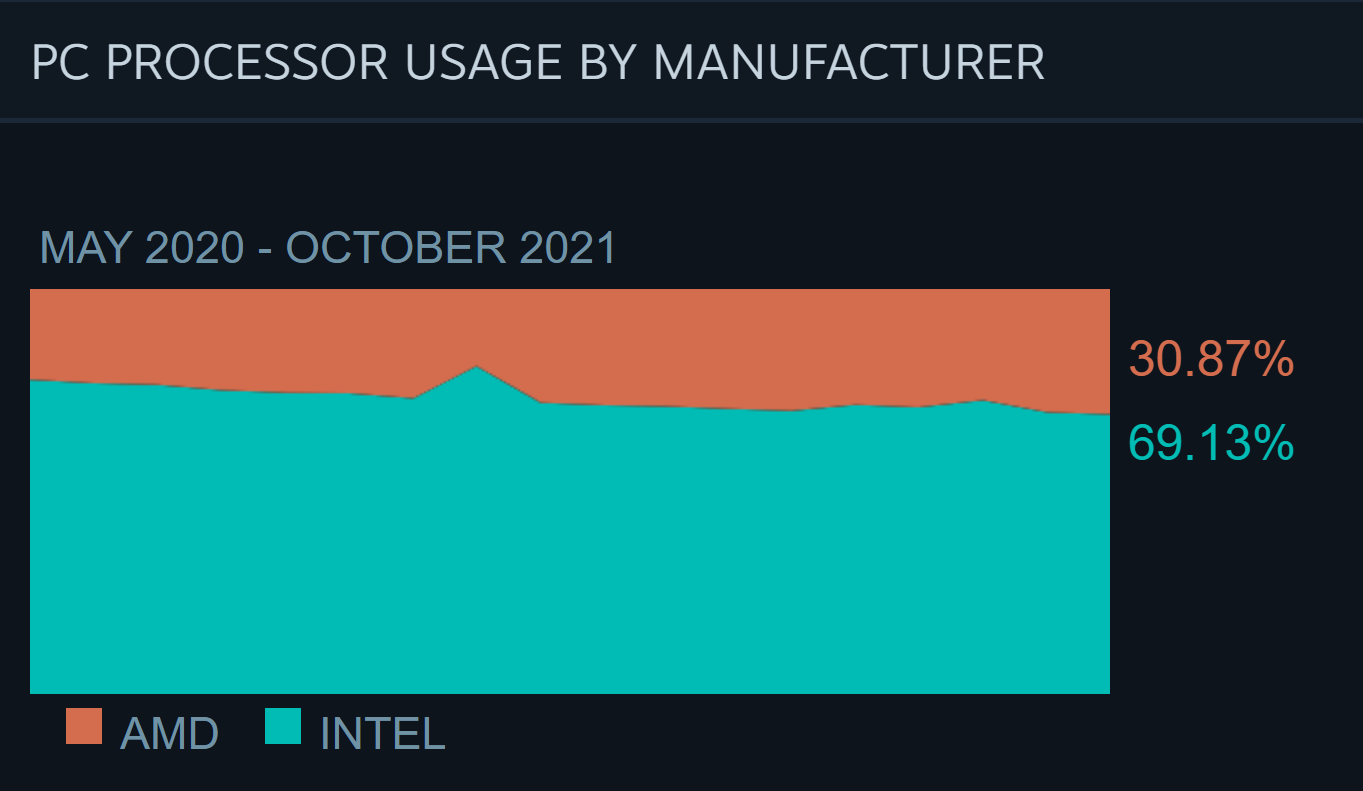In brief: It’s not as if AMD needed any more good news, but here’s some anyway: the company has reached its largest share of the x86 CPU market in fifteen years and its second-highest share ever. Team red’s cut of the notebook x86 market, meanwhile, hit a new all-time high.

The Q3 2021 x86 CPU Market Share report from analyst firm Mercury Research (via HardwareTimes) will be welcome reading for AMD. The biggest reveal is that the company has increased its overall x86 CPU share by 2.1 points quarter-over-quarter, taking it to 24.6%.
That latest figure marks AMD’s second-highest overall share ever. It’s just 0.7% off the company’s record: a 25.3% share way back in 2006 during the Athlon 64 CPU era.
It was even better news in the notebook x86 category. AMD’s unit share—excluding IoT—was up 1.8 points year-on-year, giving it all an all-time high of 22%. Revenue in the section was also a quarterly record, up 3.9 points YoY to 16.2%.
AMD has been eroding Intel's lead in the Steam survey for a long time
AMD’s continuing success in the CPU market is also reflected in the latest Steam survey. The company has been chipping away at Intel’s lead for a long time—barring a small blip in August. Its processors are now found in 30.84% of participants’ computers, which is another record high for the firm.
AMD has been on the up since the arrival of its Ryzen CPUs in 2018, and its latest Ryzen 5000 processors are loved by gamers, professionals, and creators—it’s just a shame they’re in short supply right now, as is the case with so many pieces of PC hardware. But with Alder Lake having just launched, will AMD's surge start to slow?
https://www.techspot.com/news/92076-amd-took-almost-quarter-x86-cpu-market-last.html
